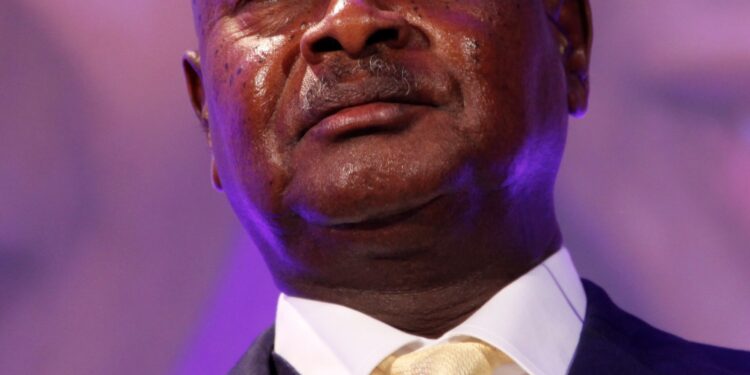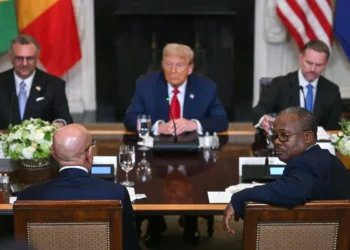Uganda has signed an agreement with the United States to accept third-country nationals who are denied asylum in America but cannot return to their home countries, the Ugandan foreign affairs ministry announced Thursday.
The arrangement comes as President Donald Trump pursues an aggressive deportation campaign targeting millions of immigrants who entered the U.S. illegally, with his administration actively seeking partnerships with third countries to facilitate removals.
Vincent Bagiire Waiswa, permanent secretary at Uganda’s foreign affairs ministry, confirmed the temporary agreement includes specific conditions designed to limit the scope of transfers. “Individuals with criminal records and unaccompanied minors will not be accepted,” Waiswa stated, emphasizing the restrictions built into the arrangement.
The Ugandan official indicated a preference for receiving people of African nationality under the agreement, though he noted that both parties are still working out detailed implementation procedures for the program.
The announcement represents a reversal from Wednesday, when another Ugandan foreign affairs official had denied media reports about the deportation agreement, claiming the East African nation lacked adequate facilities to accommodate such transfers.
Uganda’s decision to participate in the program comes despite the country already hosting nearly two million refugees and asylum-seekers, primarily from regional conflict zones including the Democratic Republic of Congo, South Sudan, and Sudan. The additional burden of U.S. deportees raises questions about the nation’s capacity to manage increased migration flows.
The Trump administration has been expanding its deportation partnerships beyond traditional arrangements. In July, the U.S. deported five immigrants from Vietnam, Jamaica, Laos, Yemen, and Cuba to Eswatini, where they are currently held in a high-security prison. These individuals had been convicted of serious crimes according to Washington officials.
The Eswatini deportations have sparked legal challenges from a coalition of Swazi and southern African non-governmental organizations, with a high court hearing scheduled for Friday to address the controversial transfers.
Similarly, eight men from various countries were deported to South Sudan via Djibouti in July, where they were reportedly held for weeks in a shipping container under harsh conditions. The treatment of these deportees has raised human rights concerns about the conditions facing those transferred under such agreements.
The administration’s deportation efforts have also extended to Latin America, with more than 250 Venezuelans repatriated to Venezuela after being sent to a notorious El Salvador prison in March, reportedly without proper due process protections.
As a key U.S. ally in East Africa, Uganda’s participation in the deportation program reflects the broader geopolitical pressures and incentives that influence such agreements. However, the arrangement also highlights the complex challenges facing countries that agree to accept deportees, particularly those already managing significant refugee populations.
The Uganda agreement represents the latest development in Trump’s expanded approach to immigration enforcement, which increasingly relies on international partnerships to manage deportation logistics beyond traditional country-of-origin returns.

















